English (with Foundation Year) BA (Hons)
Undergraduate
- Start date
- –
- Study mode
- –
- Course length
- –
- UCAS Code
- –
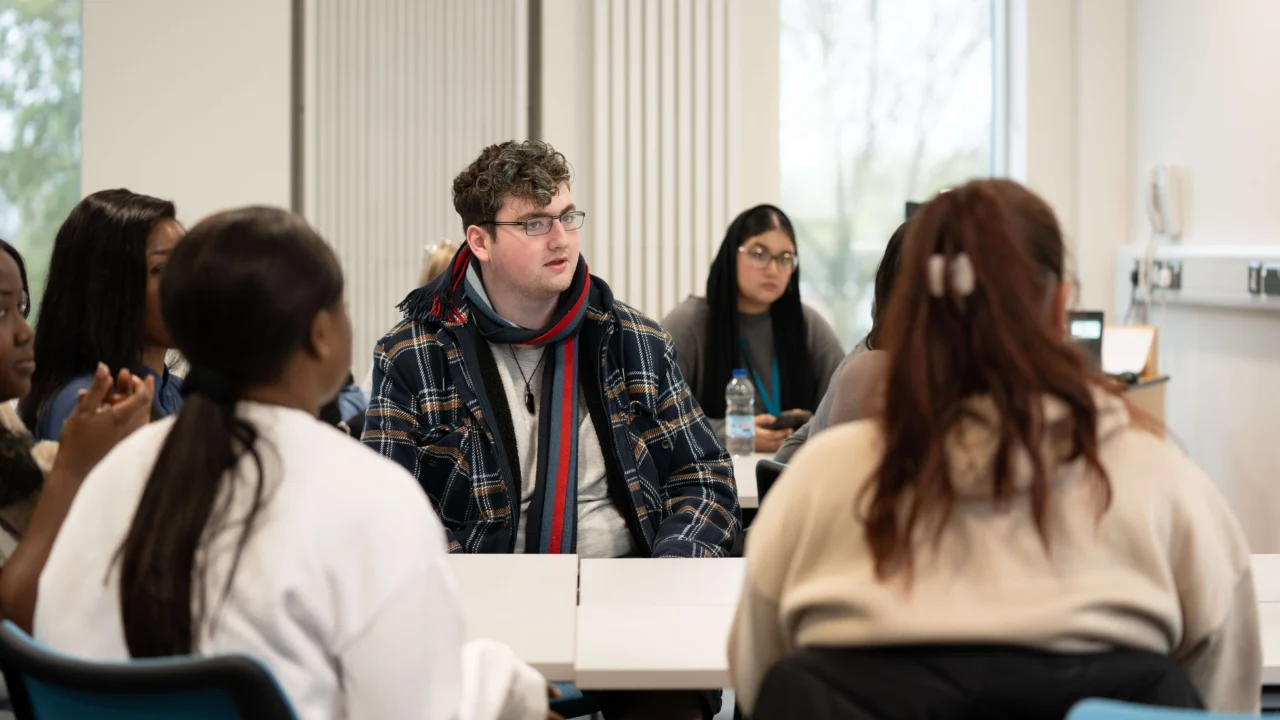
Interested in a different start date?
Discover how literature, language and culture shape the way we understand ourselves and the world around us.
The BA (Hons) English at Birmingham Newman University offers a vibrant and socially aware exploration of texts and ideas, from classic literature to contemporary media. You will develop your own critical voice while examining how stories reflect identity, society and culture. The course encourages you to see English as a living subject, rooted in creativity, inquiry and cultural relevance.
Foundation Year at Birmingham Newman University
The Foundation Year is the first year of a four-year undergraduate degree at Birmingham Newman University. It offers a flexible route into higher education for students who may not meet standard entry requirements or who are returning to study after time away. Whether you are exploring a new direction or looking to strengthen your academic foundations, this additional year of study provides the structure, support and space to help you succeed.
You’ll apply through UCAS for your chosen degree with Foundation Year. Once you’ve successfully completed the Foundation Year and met the progression criteria, you’ll move into Year 1 of your undergraduate course.
Who is the Foundation Year for?
• This route is designed for students who:
• Are returning to education after a break
• Do not currently hold the qualifications for direct entry onto a three-year degree
• Want to build confidence and academic skills before starting undergraduate study
• Are seeking a structured and supportive introduction to university life
You’ll be part of a learning community that recognises your potential and supports your development from the very beginning. The Foundation Year is not just a pathway into university. It is a purposeful and personalised start to your academic journey.
What Will I Study?
The Foundation Year focuses on helping you become a confident, reflective and independent learner. You’ll begin by exploring how you learn and identifying strategies that work for you. You’ll also engage with wider themes such as identity, inequality and the human experience in a digital world. These topics encourage critical thinking and personal insight, while connecting across subject areas.
You’ll develop core academic skills including writing, research, digital literacy and communication. These are taught through seminars, workshops, online activities and one-to-one support. The aim is not only to prepare you for your chosen subject, but to help you feel connected to your learning and to the university community.
‘For someone returning to education after a hiatus, this foundation (year) was essential in helping me regain my academic footing and feel prepared for the challenges ahead.’ – Alix Wyatt, Birmingham Newman University Alumna
What Happens After the Foundation Year?
Once you’ve successfully completed the Foundation Year and met the progression requirements, you’ll begin Year 1 of your undergraduate degree. You’ll already be familiar with the university environment, your subject area and the expectations of academic study, giving you a strong foundation to build on.
Book a free consultation
Not sure which course fits your goals? Book a free consultation with an Academic Life Coach today
Why study this course
The BA (Hons) English at Birmingham Newman University offers an engaging and contemporary exploration of literature, language and culture. It is ideal for students who want to understand how stories shape our world, how language influences thought and identity, and how English continues to evolve in response to social and cultural change. Whether you are interested in education, media, publishing or creative industries, this degree helps you build the knowledge and confidence to pursue a wide range of professional roles.
I love how students from diverse backgrounds bring their own perspectives to the texts and ideas we study. The classroom becomes a genuinely collaborative space, where ideas are exchanged, challenged, and explored together. Students often remark, ‘I’d never thought about it like that before,’ and it’s in those moments—when a new viewpoint opens a fresh way of understanding—that the experience becomes truly transformative. Kerry Myler, Senior Lecturer in English.
Explore Literature and Culture
English is rooted in interpretation, creativity and critical inquiry, and this course helps you explore how texts reflect and challenge the societies in which they are produced. You will study a diverse mix of subjects including classic and contemporary literature, non-fiction, film and digital media. Many students find that the course not only develops their academic skills but also deepens their understanding of themselves and others.
Supportive and Personalised Learning
At Birmingham Newman, you will be part of a supportive academic community that values your voice and encourages your development. Teaching is delivered through small-group seminars and workshops. You will embark upon both individual and collaborative projects and be supported with one-to-one academic guidance. You will be taught by experienced staff with expertise across literature, cultural studies and media, and supported throughout your studies. Whether you are joining straight from school or returning to education, you will find an inclusive environment that helps you grow your skills and prepare for a successful future.
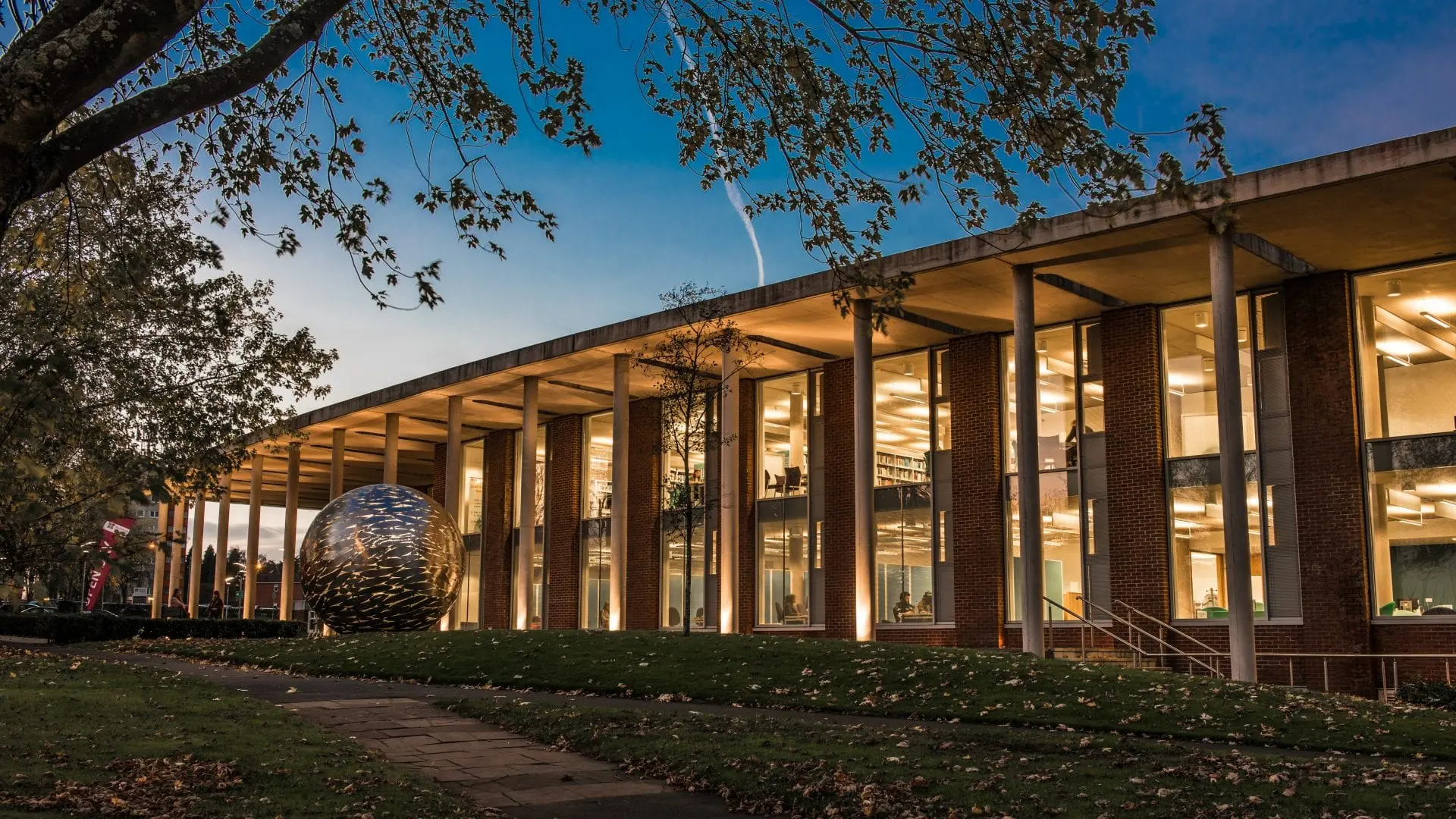
Got a question you’d like to ask?
Entry requirements
We welcome students from all backgrounds and accept a wide range of qualifications. If yours aren’t listed, don’t worry – our Admissions Team can help you explore your options. See full entry requirements.
Entry requirements, for UK home students: 48 UCAS points
Those with significant work and life experience of a complexity that demonstrates an aptitude to study at degree level, but with no formal qualifications, will also be favourably considered.
Different degree pathway options available at the end of the foundation year may have different additional entry requirements.
If you require any further information or clarification of entry requirements please contact our friendly, helpful Admissions department, who will be happy to help.
Please contact Admissions if you have any questions.
Course fees
The tuition fee for academic year 2026/27 is: £5,760. Tuition fees for courses starting April to May 2026, fall within the 2025/26 academic cycle.
Fees for the 2025/26 academic year can be found on our Student Finance pages.
Additional costs
The University will review tuition fees and increase fees in line with any inflationary uplift as determined by the UK Government, if permitted by law or government policy, in subsequent years of your course. It is anticipated that such increases would be linked to RPI (the Retail Price Index excluding mortgage interest payments).
Check out our blog/news/events
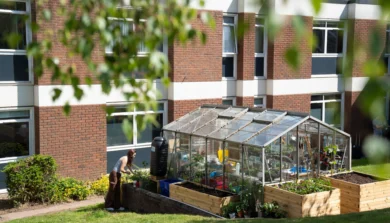
Birmingham Newman Celebrates Green Week 2026 with Campus‑Wide Events
Birmingham Newman will host its annual Green Week from 23 to 27 February 2026, bringing…
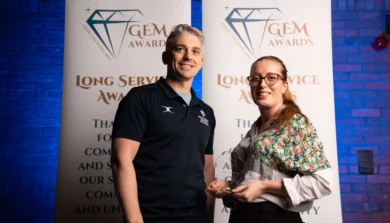
Research that makes a difference: Mark Holland wins Most Impactful Project Award
In December, we held our Staff Awards, where we recognised the outstanding achievements of colleagues…

Sports Coaching students Deliver Coaching Sessions for Local Primary Pupils
Birmingham Newman University recently welcomed pupils from St Peter’s Primary School to campus as part…

Vice-Chancellor Professor Jackie Dunne awarded MBE in New Year Honours
Vice-Chancellor of Birmingham Newman University receives an MBE for services to Higher Education.

Birmingham Newman University Celebrates Staff Achievements at Annual Awards
Birmingham Newman University celebrates its staff at the Annual Staff Awards Celebration.

Book an open day
Find out about our next open day. Book now to secure your place.
Placement information
Our Careers team provides tailored advice, placements and workshops to help you build confidence and prepare for life after university.

Studying and living in Birmingham
At Birmingham Newman University, you’ll enjoy the best of both worlds: a peaceful, green campus that creates the ideal setting for focused study and personal reflection, yet remains just eight miles from the vibrant city centre.
As the UK’s second-largest city, Birmingham is also one of the youngest and most diverse in Europe, offering a dynamic blend of culture, innovation and opportunity. From world-renowned museums and music venues to a thriving food scene alongside a growing business and tech sector, it’s a place where creativity and ambition naturally thrive.
Experience Birmingham: A City full of possibilities
Whether you’re discovering the Midlands for the first time or already know the area well, Birmingham provides a lively and inclusive environment for students. As one of the most energetic and multicultural cities in the UK, it’s a place where you can grow academically while developing personally. Its rich cultural heritage, creative energy and broad range of opportunities make it an inspiring backdrop for your university journey.
A City that loves great food
Birmingham is a brilliant place to explore diverse culinary experiences. You might wander through the famous Balti Triangle, sample global street food at Digbeth Dining Club or enjoy a relaxed meal by the canals in Brindleyplace. The city is also home to independent cafés, vegan-friendly eateries and countless hidden gems. Whether you’re grabbing a quick bite between lectures or planning an evening out, there’s always something new to discover.
Arts, culture and entertainment
The city pulses with creativity. You could catch live music at the O2 Academy, experience a world-class performance at the Birmingham Hippodrome or browse exhibitions at the Birmingham Museum and Art Gallery. Creative spaces like the Custard Factory showcase local talent while hosting events that celebrate innovation. With festivals, sporting fixtures and cultural celebrations taking place year-round, there’s never a shortage of things to enjoy.
Simple & convenient travel
Getting around Birmingham is straightforward thanks to its well-connected public transport system. Buses, trams and trains make it easy to reach campus, explore the city or travel further afield. Whether you’re commuting daily or heading off for a weekend adventure, transport is both accessible and affordable.
Life beyond the lecture Hall
Your time at Birmingham Newman University extends far beyond academic study. You’ll have the chance to join student societies, contribute to community projects or try something entirely new. The University’s supportive atmosphere encourages you to build confidence, develop practical skills and feel genuinely at home throughout your studies.
View our campus
What careers can I consider
This degree equips you with more than historical knowledge. You will graduate with the ability to think independently, evaluate evidence with confidence and communicate ideas clearly across a range of contexts.
These skills are highly valued in careers such as education, heritage, media, law and public service. Whether you choose to pursue postgraduate study or enter the workplace, you will be prepared to contribute thoughtfully and effectively, with a strong foundation rooted in critical thinking and a deep appreciation of the past.
Accreditations and exemptions
This degree offers a strong academic foundation for careers where historical insight, critical thinking and communication are key. Graduates often progress into postgraduate study, teacher training or roles in heritage, media, law and public service. With a focus on inclusive teaching and transferable skills, the course prepares you to engage thoughtfully and effectively in a wide range of professional and academic environments.
Courses we think you'll also like

English BA (Hons)
- Start date:
- September 2026
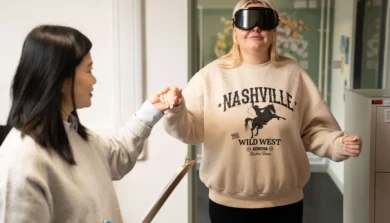
BSc (Hons) Psychology with Forensic and Criminal Perspectives (with Foundation Year)
- Start date:
- September 2026
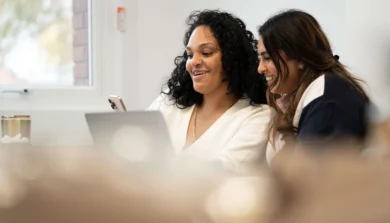
BSc (Hons) Computer Science with Cyber Security with Foundation Year
- Start date:
- September 2026
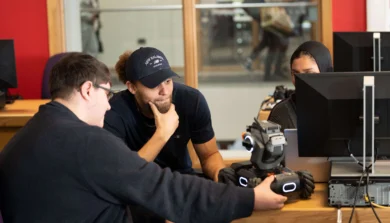
BSc (Hons) Computer Science with Bioinformatics with Foundation Year
- Start date:
- September 2026
